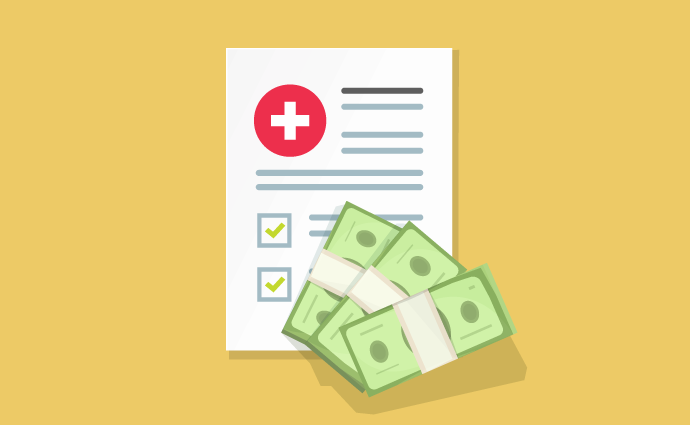Lawmakers Sprinting to Address Surprise Medical Bills
Congress is moving quickly to address surprise medical bills, but lawmakers cannot agree on whether setting payment rates or arbitration is the right solution.

Source: Thinkstock
- Congress and the White House are actively seeking solutions to protect patients from surprise medical bills, with some legislative proposals looking to set provider payment rates for out-of-network care.
Surprise medical bills are charges that patients did not expect or did not expect to be so high. These surprise bills usually occur when insured individuals receive care from out-of-network providers even when they go to an in-network hospital.
Receiving a surprise medical bill can be catastrophic for patients who already face higher deductibles and out-of-pocket expenses. Recent research shows that patient financial responsibility for care increased 11 percent in 2017, resulting in patients paying an average of $1,813 in out-of-pocket costs that year.
As patient financial responsibility continues to rise, lawmakers are moving quickly to create legislation that will shield patients from receiving surprise medical bills. Chief among them is the White House.
On May 9, President Trump held a surprise medical bill event in which he emphasized the seriousness of receiving an expected charge for healthcare services.
READ MORE: 1 in 7 In-Network Admissions End with Surprise Medical Bill
“For too long, surprise billings – which has been a tremendous problem in this country – has left some patients with thousands of dollars of unexpected and unjustified charges for services they did not know anything about and, sometimes, services they did not have any information on,” he said in the address. “They weren’t told by the doctor. They weren’t told by the hospitals in the areas they were going to. And they get, what we call, a ‘surprise bill.’ Not a pleasant surprise; a very unpleasant surprise.”
President Trump stated that his administration is prepared to hold insurance companies and hospitals accountable for surprise medical bills. He urged Congress to do so by prohibiting balance billing in which providers charge patients the difference between what the patient’s health plan chooses to reimburse and what the provider chooses to charge.
He also called on Congress to create bipartisan legislation that requires providers to give patients out-of-pocket cost estimates for scheduled, non-emergency care and stops out-of-network providers from billing patients that did not choose their services.
The bills should also include impacts all types of insurance companies without increasing federal healthcare spending, the President stated.
Since President Trump’s address, several lawmakers, including those sitting on the House Energy and Commerce Committee, have proposed legislation that would protect patients from surprise medical bills.
READ MORE: Hospitals Oppose Bundled Payments as Surprise Medical Bill Fix
The Energy and Commerce Committee’s bipartisan discussion draft would eliminate surprise medical bills for both emergency and non-emergency services, as well as across different sites of care (e.g., hospitals, ambulatory surgery centers, freestanding emergency departments), experts from the Brookings Institution explained in Health Affairs.
Importantly, the legislation would also prohibit surprise medical bills for all commercial insurance plans by forbidding balance billing. Instead, the bill would set a minimum payment amount that health plans must pay to out-of-network providers, the experts continued. The payment amount would be the median of the negotiated rates recognized by the plan or issuer for a specific service in the geographic area.
A similar bipartisan bill from Senators Bill Cassidy, M.D. (R-LA), Michael Bennet (D-CO), Todd Young (R-IN), Maggie Hassan (D-NH), Lisa Murkowski (R-AK), and Tom Carper (D-DE) would also implement set payment rates. According to a summary of the STOP Surprise Medical Bills Act, providers would automatically receive a median in-network rate for services where a surprise bill occurs.
Lawmakers argue that setting provider payment rates for out-of-network care corrects a current market failure that enables specialties to receive high in-network payment rates relative to what they would receive under typical market forces.
But allowing the federal government to dictate payment rates for providers is a slippery slope, hospital advocates contend.
READ MORE: Exploring the Fundamentals of Medical Billing and Coding
“We strongly oppose approaches that would impose arbitrary rates on providers. Insurers should maintain comprehensive networks and this plan takes us in the opposite direction by removing incentives to contract with providers,” Rick Pollack, president and CEO of the American Hospital Association (AHA), said in response to the House Energy and Commerce Committee’s draft legislation.
The Federation of American Hospitals (FAH) also said that rate setting strategy is “untested, unproven and an unnecessary government intrusion into the private market.”
Rather than setting payment rates, hospital groups are pushing lawmakers to include arbitration clauses.
Providers and payers should be able to negotiate payment rates for out-of-network services without the patient being put in the middle, the AHA advised Congress.
The state of New York relies on arbitration to prevent surprise medical bills. Providers and payers in the state abide by “baseball style” arbitration in which payers and providers put in payment offers and an arbiter decides which payment offer will stand.
Researchers from Georgetown University recently called New York’s arbitration law a success after finding that the number of surprise medical bill complaints from consumers dramatically dropped after the law’s implementation.
“For the most part, insurers and providers appear to be working out their differences without resorting to arbitration,” the study states.
A bipartisan group of Senators recently released legislation to eliminate surprise medical bills that includes arbitration, while the House Energy and Commerce draft legislation left it out.
Experts from the Brookings Institution argue arbitration is “unpredictable, lacks transparency, and could involve significant administrative costs.” Insurers and the White House have also come out against arbitration.
Lawmakers and healthcare stakeholders are at odds over surprise medical bills. But how lawmakers decide to fix the widespread problem will significantly impact hospital revenue whether Congress members approve new payment rates or arbitration as solutions.
